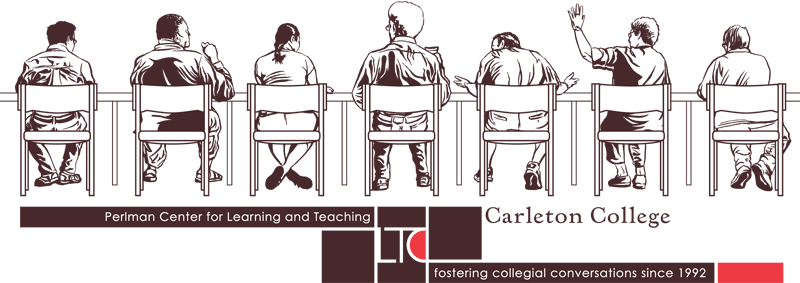The words “program assessment” strike fear and loathing into the hearts of some faculty members. Assessment can feel like one more bureaucratic thing on the to-do list that takes up time we would rather spend on course prep, curricular development, student mentoring, or research. Yet, most Carleton faculty are constantly evaluating the effectiveness of particular activities or experiences in their courses, and engaging in discussions of what worked, what didn’t, and how they might change their approach the next time around. Department or program assessment moves those discussions beyond a single activity or instructor to evaluating effectiveness at a larger scale. At a small college like Carleton, it’s tempting to claim that our knowledge of our students’ performance in classes and their post-Carleton trajectories is sufficient for assessing the effectiveness of our programs, and that if their comps are good enough, then everything must be fine. Yet as Jason Decker and Dan Groll said in their recent LTC presentation, the central question of assessment is actually a good one: “Are we doing a good job imparting to students the skills we want them to have by virtue of taking our courses or majoring in our department?” Assessment is a chance to reflect collectively on what we are doing and how we can do it better.
A paper by Laura Rosenthal, “Slightly Less Clueless After Assessment”, presented at the 2011 National Symposium on Assessment in the Humanities describes the benefits of engaging in assessment that she has seen in her English department. Rosenthal notes that assessment not only allows us to improve how we teach our students, it can also provide useful evidence when advocating for how various disciplines help students develop particular skills.
Though assessment can feel like an imposition, choosing to own assessment transforms what might seem like busywork into an activity that can provide valuable insights into how we might do better for our students. In a 2014 article “Assessment for Whom: Repositioning Higher Education as an Ethical and Value Focused Social Practice”, Wall, Hursh, and Rodgers note the evolution of assessment as a “managerial administrative practice” that is driven primarily by external accountability. The article encourages faculty to take ownership of assessment “as a pedagogical practice…[that] recognizes the complexity … and the difficulty of making practical judgments about how to best engage students in learning and best carry out the activities of a given higher education institution. Indeed, this view acknowledges assessment as a component of being a reflective professional operating in the complex, messy, modern environment of higher education.”
At Carleton, our natural tendency is to be reflective educators; engaging in department assessment work only requires that we move beyond reflection about our individual courses to data-driven reflective conversations about our programs and departments. Assessment isn’t without its challenges. Departments must identify what questions about student learning outcomes they want to explore in the assessment conversation, and then identify what data will provide useful information about student learning that can be collected without an undue burden on student or faculty time. But each department should not have to worry about this in isolation. Wall, Hursh, and Rodgers argue that assessment should be a social practice built around sustained dialogue. Carol Trosset and I are hoping to begin some dialogues across departments so that departments with similar student learning outcomes can share rubrics, discuss how they are collecting data, and perhaps identify ways to distribute the assessment workload through collaborative efforts. We welcome suggestions for what the LTC or IRA can do to make program or department assessment feel more like a useful community endeavor rather than a thankless isolated effort.
